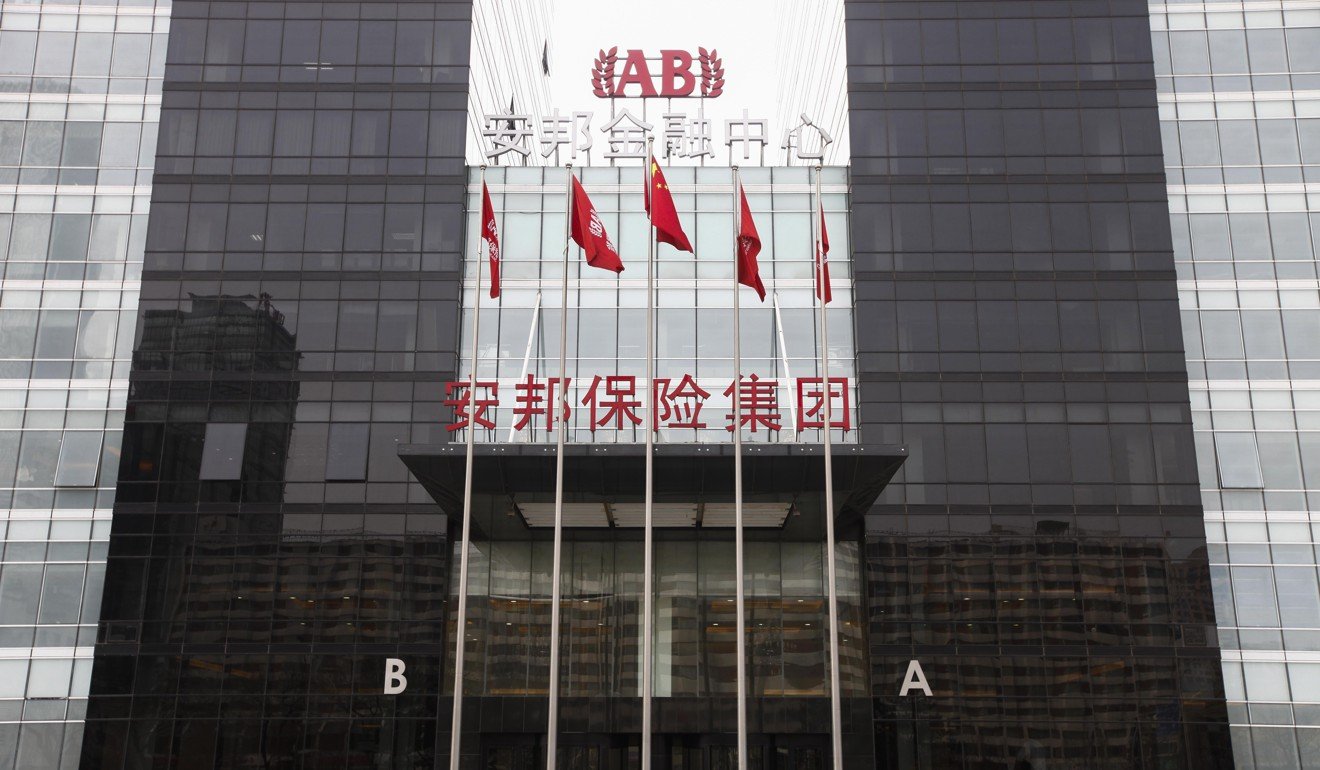
Ex-Anbang chairman Wu Xiaohui’s reversal of fortune and the questions left unanswered
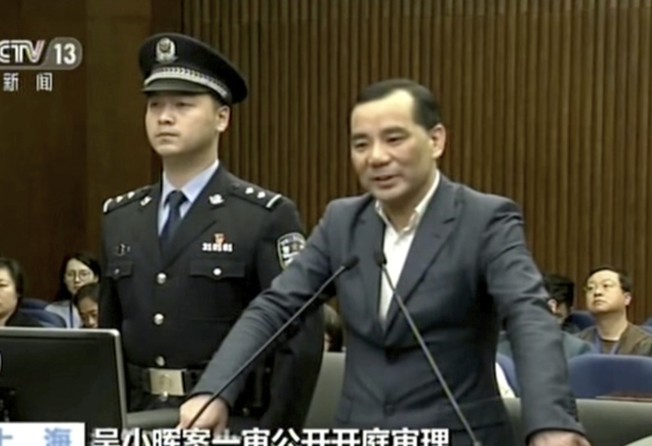
Wu Xiaohui, the glamorous, high-profile financier behind the insurance giant Anbang, was known for his good connections. Having married a granddaughter of Deng Xiaoping, he rubbed shoulders with political and business elites, both in China and abroad.
Coming from a humble rural family and starting from scratch, Wu built an insurance empire within only a decade, trumping giant state-owned rivals and securing heavily regulated licences.
Wu made global headlines in 2014 with Anbang’s deal to acquire the Waldorf Astoria hotel in New York from the Blackstone Group for US$1.9 billion, the largest amount ever paid for a single property.

Thus, despite his controversial freewheeling leveraged expansion tactics – which had been long questioned by insiders – Wu’s fall from grace, which began last June when he was detained by authorities, was a shock to many.
Wu, the former chairman of Anbang Group, China’s biggest private insurance conglomerate and one of China’s largest asset buyers, was found guilty on Thursday of illegal fundraising fraud valued at US$10.4 billion, and embezzling US$1.6 billion from Anbang’s insurance premium income. The 51-year-old was sentenced to 18 years of imprisonment.
State media did not release any video footage of the sentencing. Wu’s trial on March 28 was rushed through in just one day, with limited media access. It left many questions unanswered – particularly about how Wu obtained those almost-impossible-to-get insurance licences and who or what the mysterious source of his seed capital was.
More broadly, those questions are important to China’s financial market’s health. If Wu’s trial leaves too many questions in the minds of investors, a corruption crackdown by Chinese President Xi Jinping’s government won’t do much to restore confidence.
By the time he came to trial in Shanghai, wearing a navy blue suit and a white shirt, the once glittering Wu had lost both his freedom and his marriage – he was divorced during his detention.
According to an account of the trial posted by the Shanghai court, Wu pleaded guilty to the charges, although an earlier account said he had told the court that he did not know whether what he did constituted a crime.
Yet questions linger over how Wu got the approvals he needed for more than a decade.
Wu was accused of what prosecutors referred as embezzlement since 2007, adding up to amounts great enough to incur life imprisonment. But the hearing revealed little about why such behaviour remained undiscovered or was condoned in the heavily regulated insurance industry.
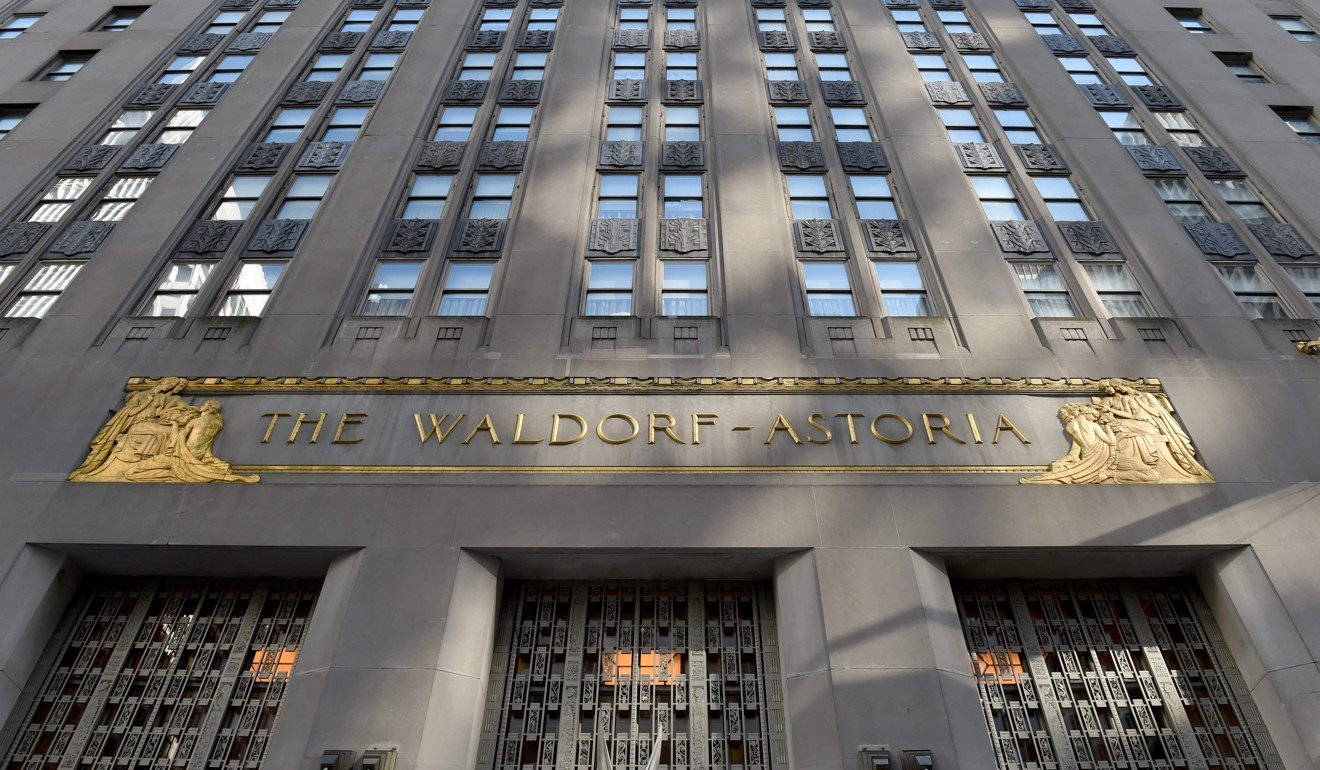
With so many questions unanswered, Wu’s trial was handled with a high level of secrecy, reminiscent of numerous other politically sensitive cases in China that could hardly meet international standards for open and fair trials.
At the centre of the accusations was what prosecutors called a fundraising fraud that began in 2011. Under Wu’s orders, they said, Anbang raised capital through selling “wealth management” insurance policies, exceeding the regulators’ approved quota of such policies by 723.87 billion yuan (roughly US$115 billion) in the next six years, the court was told.
Wu had severely damaged “the safety of investors’ capital” and “crushed national financial security”, the prosecutors said.
Officials from the China Insurance Regulatory Commission (CIRC) told the court they had issued mandates to ban Anbang’s sales of wealth management policies, which Wu acknowledged during the trial. But Caixin, a mainland-based financial news outlet, reported that the ban came in 2017, six years after Wu’s alleged illegal fundraising began.
The most recent approval for Anbang’s wealth management policies arrived as recently as January 2016, in a notice from the CIRC permitting the extension of sales of more than a dozen Anbang products. Permission to extend sales of wealth management policies is rare in the industry.
The policies, mostly called universal life insurance products, are essentially high-yield, short-term deposits, rather than traditional insurance policies.
Anbang raised more than 100 billion yuan worth of premiums through selling wealth-management policies in 2016, making up more than 65 per cent of the group’s premium income and almost double the industry average, according to the insurance regulator.
The regulator tightened supervision over the products in 2017, concerned that insurers were using the short-term liabilities to back long-term investment.
James Zimmerman, the managing partner of the international law firm Sheppard Mullin’s Beijing office, said Wu’s risky tactics – the freewheeling leveraged buyouts and investments – were at least condoned by China’s regulators.
“All policies and insurance products sold in China must be approved by the China Insurance Regulatory Commission, and there is no way that he would have gone on selling anything for long without the CIRC’s approval or consent,” said Zimmerman, a former chairman of the American Chamber of Commerce in China.
“My view is that the insurance regulators knew what Wu Xiaohui was doing and either approved or looked the other way for a long time.”
The court case was part of a series of investigations since June 2017 that have been mounted against Anbang and a handful of China’s biggest overseas asset buyers – known in China as “crocodiles” – in a government programme to pare back freewheeling leveraged buyouts and rein in financial malfeasance.
During the trial, prosecutors said that companies controlled by Wu had obtained 98 per cent of shares in the Anbang Group via a pair of investments in 2014, when Anbang’s registered capital took a great leap from 12 billion to 61.9 billion yuan.
Covered by the massive capital injections, which were both approved by the CIRC, Anbang was eligible to issue a great amount of short-term policies, raising eye-catching premiums from retail investors with aggressive promise for returns.
The premium income of Anbang Life Insurance – the life insurance unit which is also the flagship of Anbang Group – more than quadrupled to 40.5 billion yuan in a year in 2014, thanks to the eye-catching sales through retail banking channels, beating all competitors on the market.
More than 96 per cent of the premium income under Anbang Life came from banking channels from 2012 to 2014, compared with an industry average of less than 40 per cent, according to a report by the state-owned Dagong Global Credit Rating.
“It remains a great mystery what enables Anbang to make it grow so quickly. Why were so many banks willing to sell the products for Anbang? Of course Anbang is aggressive in taking up bank stakes on the secondary market, but that is not strong enough to explain why others cannot,” said Guo Zhenhua, head of the insurance department at Shanghai University of International Business and Economics.
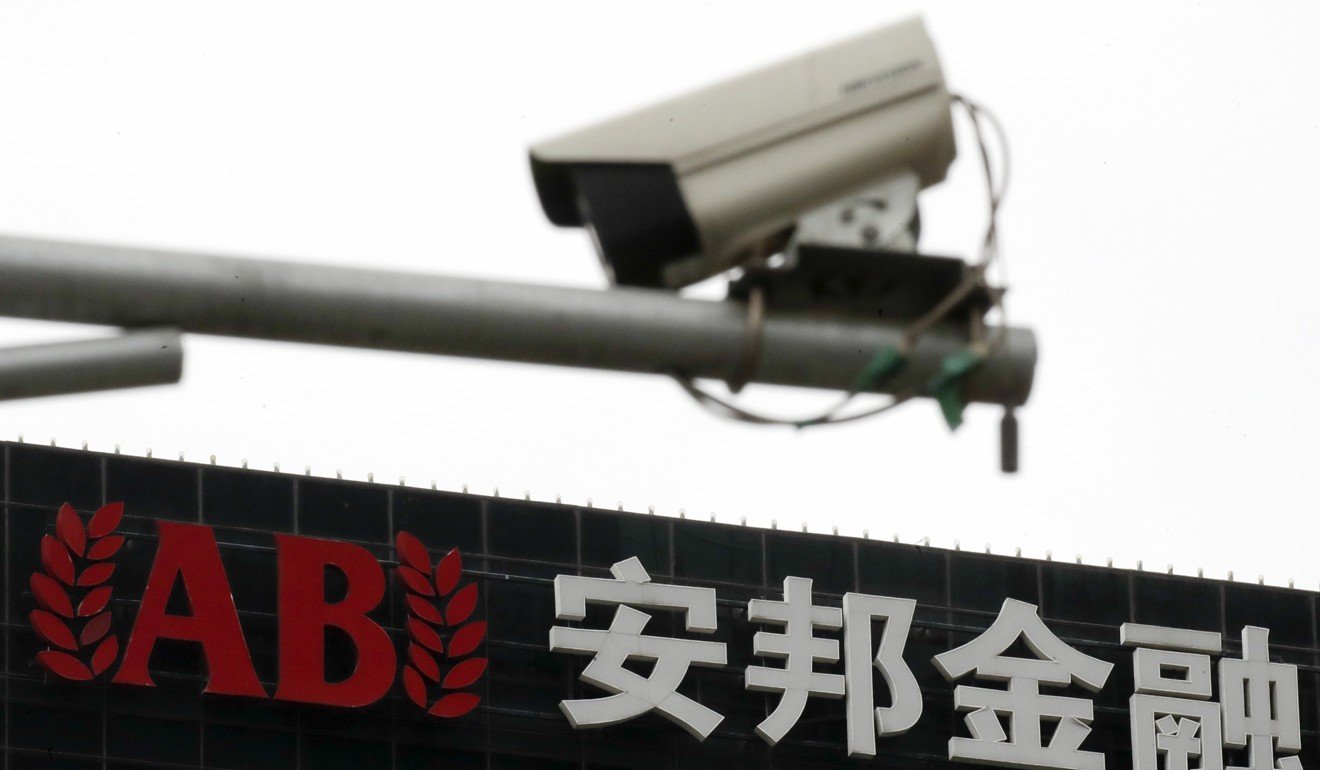
During Wu’s trial there was no mention of the responsibility of any financial regulator. While Wu was not accused of bribing any official, the CIRC remains the only Chinese financial regulator that has had a chairman sacked for corruption.
Former CIRC chairman Xiang Junbo was placed under a corruption investigation in April last year, and expelled from the party in September. Preliminary investigation found that Xiang had abused the power to supervise and approve, according to the party’s anti-graft watchdog. Xiang is now awaiting trial on corruption charges.
While there are few details of personal ties between Wu and Xiang, most of Anbang’s growth took place on Xiang’s watch, including the two cash infusions in 2014.
Those 2014 infusions used premium income from Anbang, which was first diverted to companies controlled by Wu, according to prosecutors, who charged him with embezzlement based on those moves.
Before the two rounds of infusions, both approved by the CIRC, mainland media had carried multiple investigative reports of Anbang, examining its historical deals in great detail.
And overseas, Anbang had begun to provoke scepticism about its murky financing, tripping over US disclosure requirements. In the months before Wu’s detention last year, Anbang had to drop two ambitious acquisition plans in the US, for Starwood Hotels & Resorts and for Fidelity & Guaranty Life, after US regulators pressed for more information about Anbang’s financial structure, according to media reports.
When confronted with doubts around the company’s chaotic entrusted holdings and suspicions of fake cash injections, regulators had simply cited the difficulty of gathering evidence and the limited resources of their department, according to Caixin.
Although Anbang flourished during Xiang’s tenure, the company had succeeded in acquiring official permits even before he headed the agency. Anbang was approved to set up a life insurance firm in June 2010 – more than a year ahead of Xiang’s appointment – by securing a licence that was considered extremely valuable in China’s insurance industry.
For example, more than 60 requests were filed to set up insurance companies in 2016, and only one received CIRC permission by the end of the year.
“To obtain a life insurance licence, you have to be qualified according to a set of criteria, which include requirements regarding capital capacity, shareholding structures, etcetera.
“But the key is whether you could be recognised for ‘goodwill to do insurance business’ rather than making insurance a fundraising platform, and that is subject to the decision of the regulator,” Guo said.
In 2004, Wu founded Anbang Property Insurance, from which he started building his empire, inviting onto the company’s board Chen Xiaolu, son of Marshal Chen Yi, a founder of Communist China and its long-time foreign minister.
Sons and daughters of Communist China’s first generation of revolutionists, referred to by many as “princelings”, still wielded great influence among China’s political and business elites, via an informal network built on family and friendships.
According to a personal friend of Chen, he was kept in the dark about Anbang’s dealings, and chose to stay with Wu as a board member despite the company’s risky tactics because he relied on the thoroughness of the watchdog agency.
“He believed he could only trust reports by the CIRC,” said the friend, who spoke on condition of anonymity because of the sensitivity of the topic. “If even the CIRC could not confirm Anbang’s problems, neither could he.”
Chen, who insisted he retain only a nominal role in Anbang and denied any involvement in business operations, died in late February after a heart attack. He was 71.
Like many other politically sensitive cases the country has seen, Wu’s trial itself was surrounded by secrecy.
Journalists outside the First Intermediate People’s Court of Shanghai, where Wu’s case was heard, were told by security guards that the whole court was “not open” during the one-day trial, despite state media’s description of it as a public trial.
“The case does not appear to involve state secrets or national security, so the fact that the court hearing was closed to the public and reporters means the proceedings were conducted in a manner that falls below international standards of a public trial,” said Wang Ting, a corporate lawyer with the US-headquartered law firm Paul Hastings.
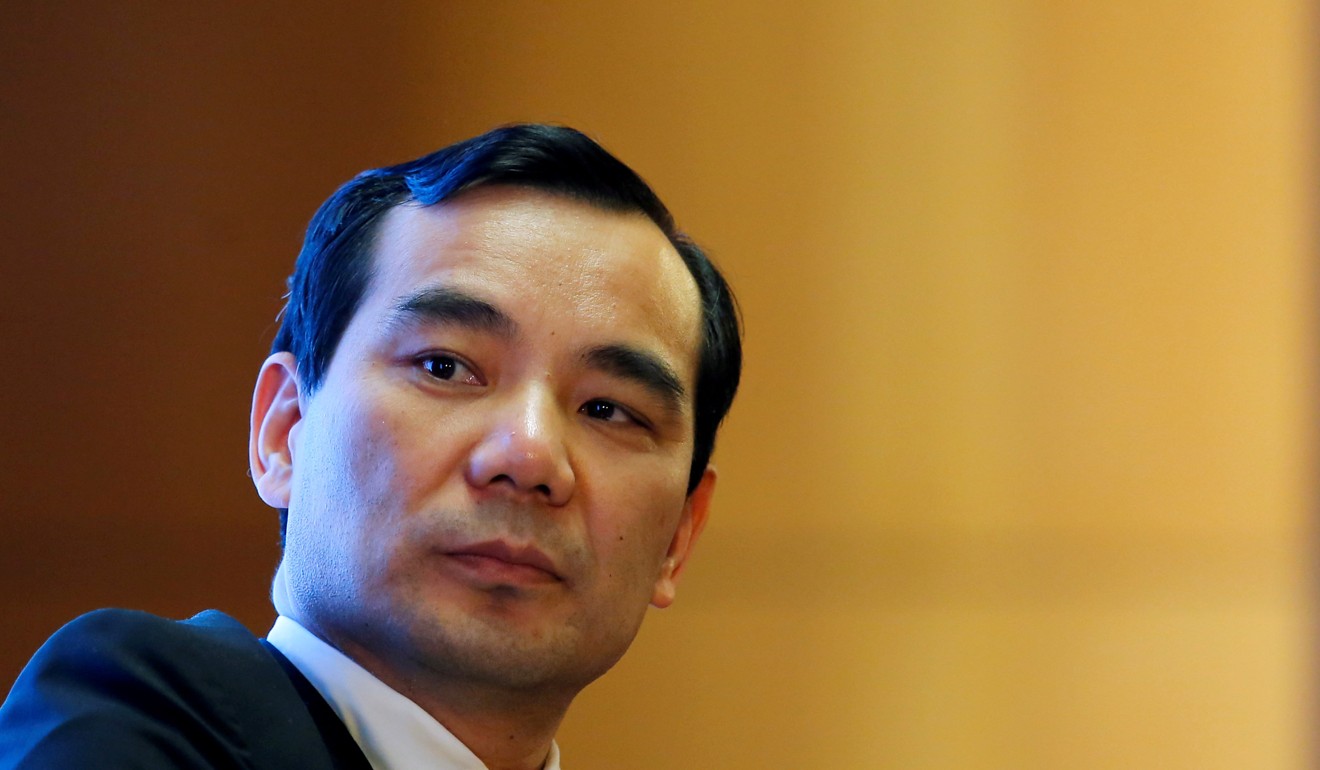
The court published 20 summaries of the trial which it called “live coverage” of Wu’s trial on Weibo, China’s equivalent of Twitter. Wu contested all charges, but his arguments were only paraphrased very briefly.
“We have a partial report on Weibo that Wu objected to factual aspects of the charges,” Wang said. “But we do not know the specifics of what evidence he was objecting to, so we do not know if the trial was fair.”
Wu was represented by lawyers Zhai Jian and Pan Keben, both of whom have close ties to the Chinese government.
Zhai is a vice-director of the criminal affairs committee of the All China Lawyers Association, a semi-official group that admits lawyers trusted by the government. He is also a special consultant to the National People’s Congress, China’s legislature.
Pan had been an award-winning state prosecutor for more than 10 years before he became a defence lawyer.
Although only filtered details from the trial were made public, it also stirred discussions in the legal community about whether Wu’s conduct was a criminal act or merely a breach of regulations.
Che Hao, an associate professor with Peking University’s law school, doubted the prosecutors’ claim that Wu had broken the law by selling products with the insurance regulator’s approval, even though he had exceeded the official quota.
Che argued that only fabricating insurance qualifications or insurance contracts should be considered illegal fundraising fraud, citing China’s criminal law and past judicial interpretations.
“Wu’s fundraising better suits the description of violating insurance regulations, not ‘illegal sales of insurance’,” he wrote in a mainland legal journal.
Che added that his colleagues shared that opinion, too. “My fellow professors have said they could not comprehend the definition of fundraising fraud [in Wu’s case],” he wrote.
He also argued that Wu did not seek to avoid repaying funds Anbang raised, nor were there any reports of losses among Anbang’s clients. Therefore, he contended, the prosecutor’s accusation of fraud was not sound.
As Wu’s rise and fall passes into history, questions around the future of Anbang remain.
After the regulator’s takeover of Anbang in February, the China Banking and Insurance Regulatory Commission announced on April 4 that China would inject 60.8 billion yuan (US$9.7 billion) into the group to guard the insurer against “insolvency and instability”.
It said Anbang would soon start to select strategic shareholders and introduce private capital to take part in its equity restructuring. The regulator said Anbang would be under its control for at least one year, which could be extended to two.
“To ensure that shareholder interests are protected, the regulatory process should be fully transparent and stakeholders should be allowed an opportunity to be heard,” said Zimmerman, of Sheppard Mullin. “Without transparency, the bailout will be under a cloud of suspicion.”
With the insurance giant under the temporary watch of the central government, the future is unclear for the landmark buildings Wu bought during his heyday: New York’s Waldorf Astoria hotel and the Strategic Hotels and Resorts, which include the JW Marriott Essex House in New York and the Four Seasons Hotel in Washington.
Anbang has interviewed investment banks to advise on potential asset divestments, Bloomberg has reported.
But this time, any potential buyers will be dealing with the Chinese officials overseeing Anbang, instead of the legendary Wu.